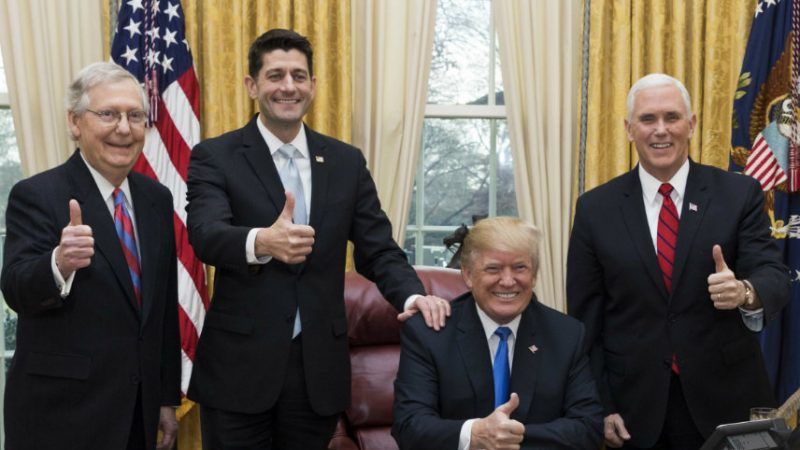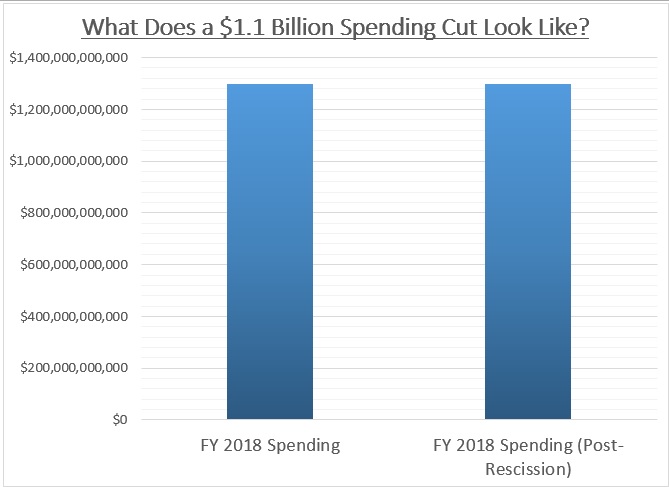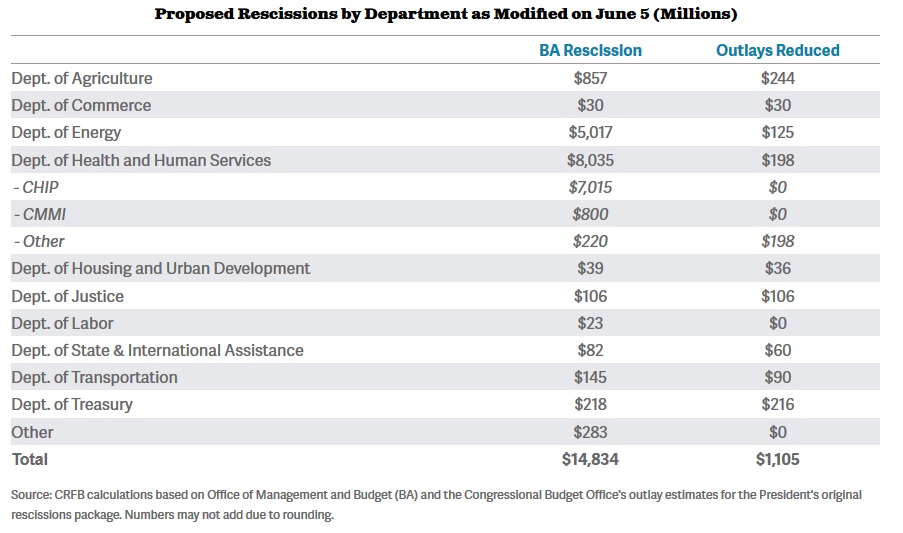Congressional Republicans Say They Just Cut $15 Billion in Spending. It's Actually Only $1.1 Billion.
President Donald Trump's rescission bill actually cuts just $57 million from current year spending. So that oughta solve the fiscal crisis.

The House voted 210-206 on Thursday evening to approve what Republicans claim is a $15 billion spending cut made at the request of President Donald Trump.
In reality, the so-called "rescission" package that Trump urged GOP lawmakers to pass this week cuts only about $1.1 billion in federal spending—or about 0.08 percent of the $1.3 trillion spending bill passed by Congress and signed by Trump in March.
It's not even accurate to say that the rescission will put a dent in federal spending. I mean, can you see a difference here?

That chart actually gives the GOP the benefit of the doubt by assuming that all $1.1 billion would be cut from the current year's spending. In fact, the cut in the current fiscal year is smaller still: just $57 million, according to the Congressional Budget Office's analysis of the bill. Most of the cuts would apply to the next three fiscal years, with a not-so-whopping $368 million trimmed from next year's proposed spending levels.
Trump and congressional Republicans are able to claim this is a $15 billion cut because the rescission is targeting about $15 billion (actually $14.8 billion) in current spending and so-called "budgetary authority" from previous years. It's still worthwhile to sweep up those leftover, unspent dollars from a variety of federal agencies and departments so they can't be used on anything else, but this is hardly a "cut" in any meaningful sense.
"It's not a large spending cut, and it's not going to offset the damage done earlier this year," Marc Goldwein, senior vice president for the Committee for a Responsible Federal Budget, a nonprofit that favors balanced budgets, told The Washington Post on Thursday.

Mostly, the rescission bill serves as an example of how difficult balancing the federal budget is, both mathematically and politically.
Objectively, $1.1 billion is a lot of money. Unfortunately, it's barely even a rounding error for the current U.S. budget. But that hasn't stopped Trump and top congressional Republicans, like Speaker of the House Paul Ryan (R-Wis.) from proclaiming the bill as evidence of their fiscally conservative bona fides.
Great news ? The House just started debate on the largest rescission package in history. This budget-cutting tool will allow us to cut nearly $15 billion in unused and unnecessary government spending.
— Paul Ryan (@SpeakerRyan) June 7, 2018
That nonsense is particularly galling when it comes from Ryan, who is smart enough to know the difference between budgetary authority and future spending, even if he's counting on the fact that most voters don't. It's just another illustration of how far Ryan has fallen from his days as the House's earnest budget-making nerd.
The left is just as guilty of peddling half-truths in the debate over the rescission bill. Senate Minority Leader Chuck Schumer (D-N.Y.) seized on the proposed cut of $5 billion in budgetary authority for the Children's Health Insurance Program as an opportunity to blame Trump and the GOP for "going after health care dollars that millions of children rely on, especially during outbreaks of the flu and other deadly illnesses." The rescission bill will go to the Senate next.
But the congressional authorization to spend that money expired in September, and Congress provided a new stream of funding for CHIP as part of the budget deal passed earlier this year. In trying to make some basic budgetary house cleaning sound like Republicans are injecting poor kids with flu viruses, Schumer is only making a fool of himself.
That's why cutting spending is so impossible in Washington today. Neither side is even close to having an honest discussion about it.


Show Comments (27)